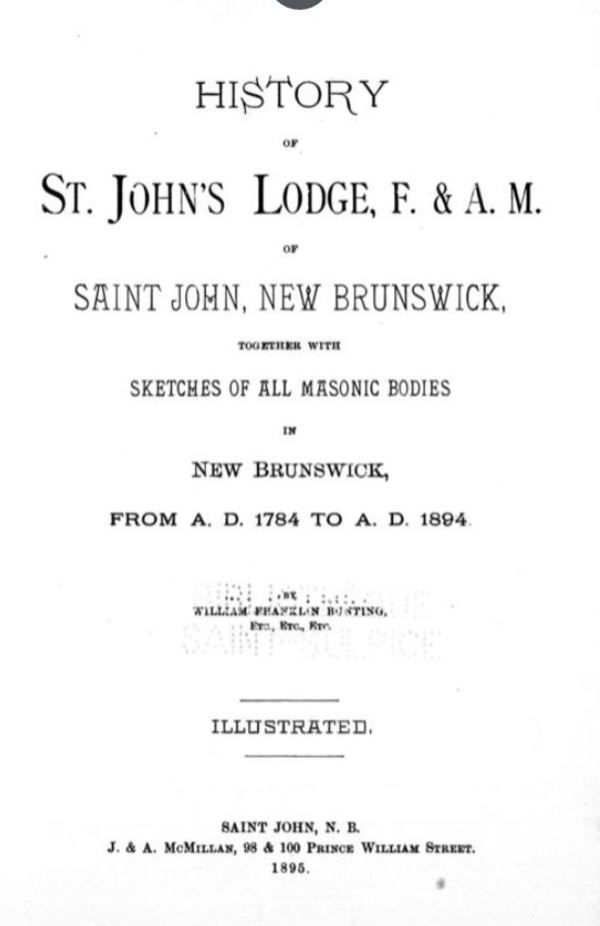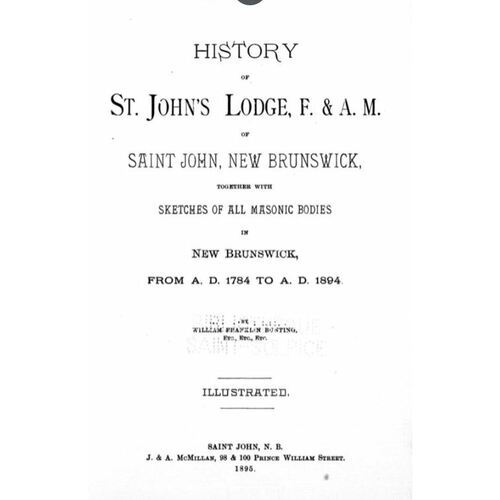
Source: Link
BUNTING, WILLIAM FRANKLIN, civil servant, magistrate, author, and sportsman; b. 25 May 1825 in Saint John, N.B., son of the Reverend Joshua Bunting and Elizabeth Giraud; d. there 14 Jan. 1897.
William Franklin Bunting received his education in Saint John at the commercial and mathematical school of William Mills and the high school of Jarvis William Hartt. He commenced his public career in 1846 as clerk in the office of the city’s collector of taxes, and he remained with the office for over 40 years. On the passage of a new assessment act for Saint John in 1859 he was appointed clerk to the Board of Assessors that was formed under it. In 1882 another assessment law created a permanent chairmanship of the board. Bunting was named to the position, and he held it until 1896, when he was removed and made an assessor.
Bunting was active in various aspects of public life. He served as a member of the volunteer fire department from its formation until its disbandment in 1864, the final 14 years as foreman of a company. In 1874 he was appointed a magistrate for the city and county of Saint John.
Besides fulfilling his civic responsibilities Bunting took an active role in the social, cultural, and sporting life of Saint John, especially in the masonic fraternity. He began his enduring involvement with freemasonry in 1852 by joining St John’s Lodge No.632, which had been founded 50 years before by Hugh Johnston*, John Wolhaupter*, and others. Variously its secretary, treasurer, and master, Bunting found time to assist in masonic activities throughout New Brunswick as well, serving as provincial grand secretary between 1861 and 1867. When the new Grand Lodge of New Brunswick was organized in the latter year Bunting became grand secretary, a post he held for the ensuing 15 years. In 1882 he was elected deputy grand master and in 1883 he was elevated to grand master. He retired the next year because of the demands of his position as chairman of the Board of Assessors.
The masonic order was extremely important to Bunting throughout his life. He often visited other communities in the province, assisting in the starting up of lodges, the installation of officers, or other ceremonial duties. His most permanent contribution was a book, the History of St. John’s Lodge, F. & A.M. of Saint John, New Brunswick, together with sketches of all masonic bodies in New Brunswick from A.D. 1784 to A.D. 1894 (Saint John, 1895), which provides a detailed account of the order in the province and biographical notices of leading members. Bunting also wrote a series of articles in the St. John Daily Sun between February and May 1888 on the early government of Saint John.
As an unmarried man Bunting did not have family obligations to restrict his activities. Although his civic position and masonic duties took much of his time, he still was able to involve himself with a number of other groups in the city. He was a leading member of the Polymorphian Society, a group of young Saint John men well known for public parades and entertainments, and he served as secretary between 1858 and 1864 of the Saint John Mechanics’ Institute.
Leisure pursuits were an important part of Bunting’s life. He enjoyed a reputation as an enthusiastic fisherman and hunter, visiting many streams and hunting areas in the province. Within the city boundaries he was a member of the Saint John Baseball Club and the Pleasure Grounds Association and was active in founding the Victoria Skating Rink and Club in 1863. As was so often the case with Bunting, his involvement went beyond mere support and participation; he served as secretary-treasurer of the skating club for several years and president for a year.
Because of his role in 19th-century Saint John, Bunting was well placed to observe the social, political, and cultural developments in the community. He began a diary in 1858 and maintained it until shortly before his death. Although he stated that his intentions were simply to record the daily occurrences of his life, his meticulous observation of events in the city made him an astute reporter of the local scene. He referred regularly to political happenings and described the varied cultural pursuits of his contemporaries. His account of the catastrophic effects of the great fire of 20 June 1877 is typical of his style. Not only does he describe in detail the ravages of the conflagration but he reveals his sense of duty and commitment by his comment that although he was aware the fire was serious his job required all his attention and he did not comprehend until late in the day the true extent of the disaster. Bunting also chastised other civic officials for not properly attending to their duty to save valuable documents.
Bunting died suddenly of heart failure in 1897. An obituary stated that “the best years of his life were given to the service of the city and he discharged faithfully very difficult and onerous duties.” He gave willingly of himself in all his involvements, whether political, social, cultural, or sporting. His diaries remain a testament to a man who enjoyed his life and gave the community as much as he received in return.
City of Saint John, N.B., City Clerk’s Office, Common Council, minutes, 17 Jan. 1884 (mfm. at N.B. Museum). N.B. Museum, W. F. Bunting, diaries, 1858–97. Gripsack (Saint John), February 1897 (copy in N.B. Museum). N.B., Acts, 1859, c.37; 1882, c.59. St. John Daily Sun, 15 Jan. 1897.
Cite This Article
Donald P. Lemon, “BUNTING, WILLIAM FRANKLIN,” in Dictionary of Canadian Biography, vol. 12, University of Toronto/Université Laval, 2003–, accessed January 22, 2025, https://www.biographi.ca/en/bio/bunting_william_franklin_12E.html.
The citation above shows the format for footnotes and endnotes according to the Chicago manual of style (16th edition). Information to be used in other citation formats:
| Permalink: | https://www.biographi.ca/en/bio/bunting_william_franklin_12E.html |
| Author of Article: | Donald P. Lemon |
| Title of Article: | BUNTING, WILLIAM FRANKLIN |
| Publication Name: | Dictionary of Canadian Biography, vol. 12 |
| Publisher: | University of Toronto/Université Laval |
| Year of revision: | 1990 |
| Access Date: | January 22, 2025 |



